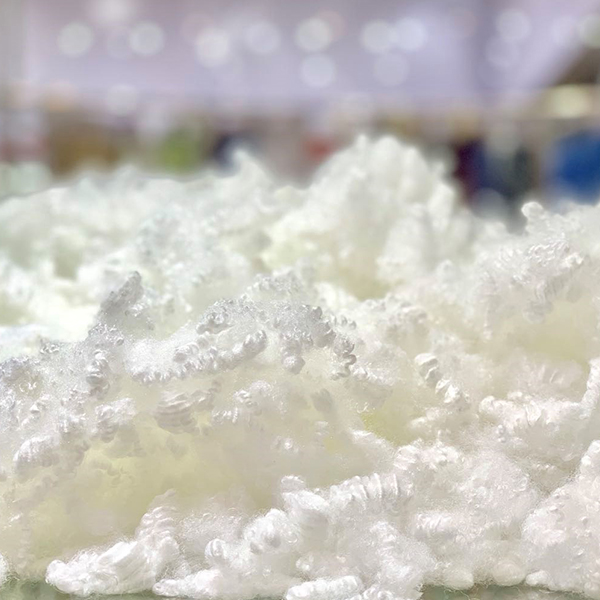
Polyester yarn is a widely used material.
Spun Polyester yarn is what?
It is synthetic fibres made from spinning polyester filament into a yarn structure are polyester spun yarn. Filament polyester is created of continuous long strands while spun polyester is created by twisting small staple fibres into yarn. Perfect for many other textile applications, this spinning technique provides the fibre with a flexible and textured quality. Apart from polyester’s strength and durability, the produced yarn offers the comfort and adaptability of spun fibres.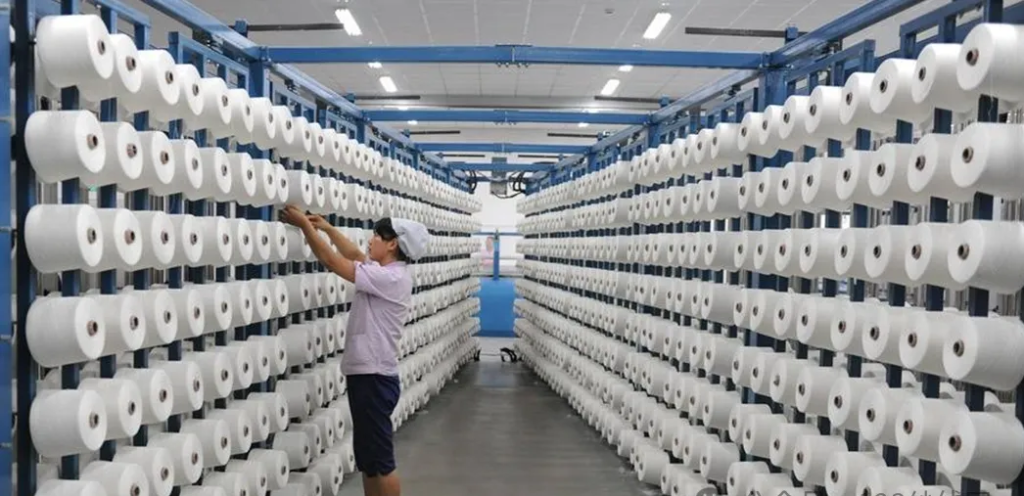
From raw polyester to spun yarn, manufacturing processes Starting the process of polyester spun yarn, polyester chips are melted and then drawn into filaments. Usually between 1.5 and 6 inches, these filaments are chopped into staple lengths suitable for spinning. The staple fibres next are carded, aligning them and forming a web of ready-for-spinning strands. Pulled and twisted together the carded fibres create polyester yarn. The yarn requires the necessary strength and structure, hence the twisting method is rather crucial. The spun polyester yarn can be made in many thicknesses and twist degrees depending on the intended use. The yarn might be treated further after spinning—dyed, coated, or heat-set—to raise its performance standards.
Important Features of Spun Polyester Yarn:
Spun polyester yarn is a prominent choice in textile making because of has several unique properties.
Among its key traits are these:
1. Excellent strength and abrasion resistance describe spun polyester. It is less prone to wear and tear than other fibres and, hence ideal for high-stress applications like upholstery and office.
2. Polyester does not easily absorb any moisture, so it fights it differently than natural fibres. This makes spun polyester yarn resistant to mildew and mould and helps fabrics or apparel retain their shape even in humid conditions.
3. Excellent colour retention of polyester fibres assures spun polyester yarn-made clothing stays bright and fade-resistant over time.
4. Polyester spun here resists shrinking, stretching, and creasing. Easy care. Perfect for domestic textiles and clothing, this low-maintenance fabric requires less care than natural fibres like cotton or wool.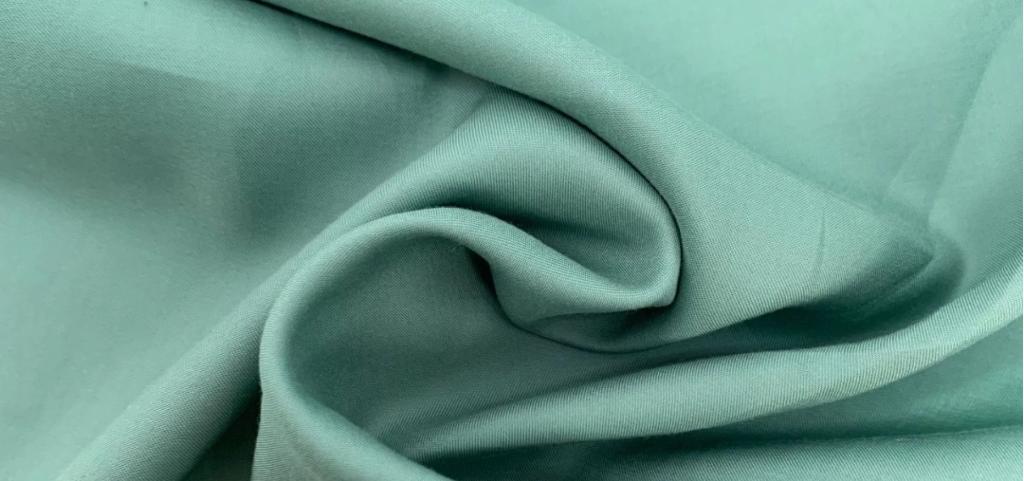
Although polyester is often seen as less soft than natural fibres, spun polyester yarn feels more cosy than its filament cousin. Its softer feel from the spinning process fits for knitting and casual wear.
Benefits of spun polyester yarn for textile manufacture:
Because of its several advantages, spun polyester yarn is becoming more and more popular among manufacturers and consumers:
Economically speaking:spun polyester is rather less expensive than natural fibres like wool or cotton. The manufacturing technique is efficient, and the easily obtained raw materials aid in lowering manufacturing expenses.
Environmental advantages abound: While polyester is a synthetic fibre, Sp spun polyester yarn using recycled polyester (rPET). Reducing the demand for raw resources and guiding plastic waste from landfills helps to minimise the environmental impact.
Where is polyester yarn used?
From daily wear like shirts and trousers to industrial materials like seat covers, curtains and carpets, spun polyester yarn finds use in a large variety of textile products. It can also be used with other fibres like cotton or wool to create textiles with a combination of attributes. Strength and Performance: Spun polyester yarn resists quite significantly deformation, shrinking, and stretching. It is ideal for outdoor fabrics and heavy-duty applications as it can withstand demanding conditions.
Making Use of Spun Polyester yarn
Spun polyester yarn’s flexibility equips it for many different applications. Some of the most regularly utilised applications are listed here:
1. Clothing is one of the most regularly utilised spun polyester yarn applications. Shirts, pants, jackets, and even athletics are fashioned with it. Usually blended with cotton, spun polyester creates fabrics with the breathability and comfort of cotton mixed with the toughness and wrinkle resistance of polyester.
2. Home textiles include towels, bed linens, curtains, and upholstery where spun polyester finds tremendous application. Products meant for regular usage or washing will find ideal in their easy-care properties and durability.
3. Spun polyester yarn finds application in tarpaulins, vehicle parts, and outdoor clothing. Its strength, abrasion resistance, and weathering resistance qualify it for use in products that have to endure hostile environments.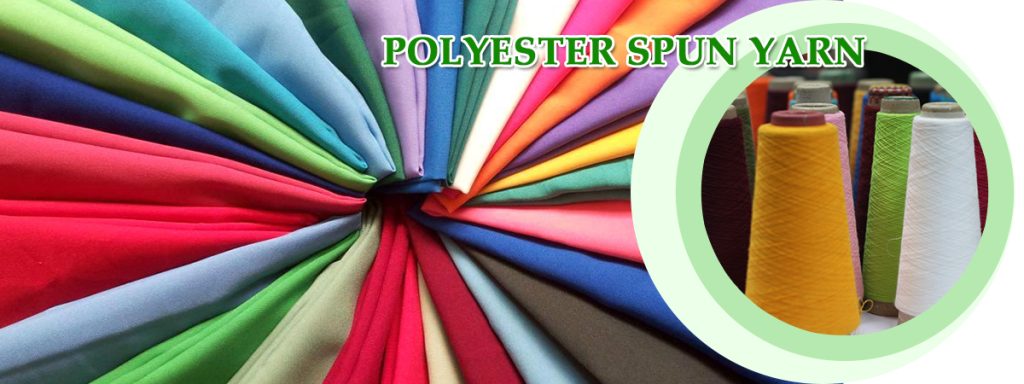
Spun polyester yarn is usually used as a sewing thread as it is so flexible and robust. Used in hand as well as machine stitching, it is particularly regarded for its tenacity and fraying resistance.
Feature Product
-
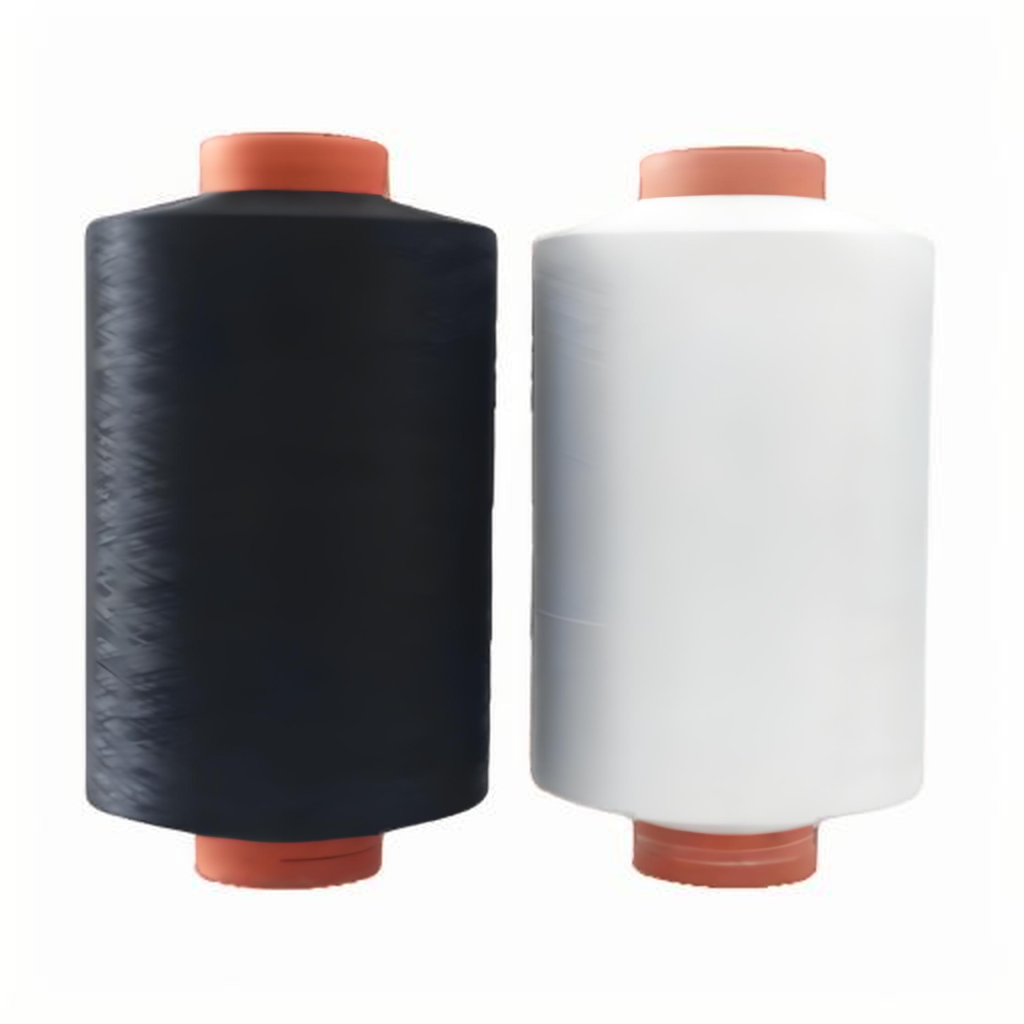 DTY 100D/144F Polyester Yarn
DTY 100D/144F Polyester YarnDTY 100D/144F Polyester Yarn: The Ultimate Guid...
-
 DTY 100D/96F Polyester Yarn
DTY 100D/96F Polyester YarnDTY 100D/96F Polyester Yarn: The Soft, Stable S...
-
 DTY 75D/144F SIM Polyester Yarn
DTY 75D/144F SIM Polyester YarnDTY 75D/144F SIM Polyester Yarn: A Top Choice f...

